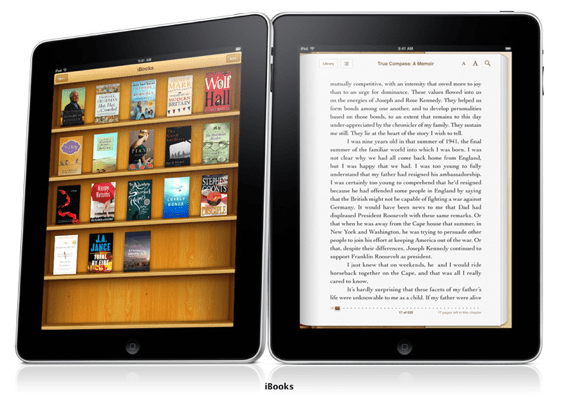According to the U.S. Justice Department’s latest filing in its suit against Apple and a number of major publishers over alleged price fixing in the eBook market, the DOJ won’t make any major changes to its proposed settlement after receiving and analyzing 868 public comments about the suit. The settlement is currently under review in a federal court in New York and today’s document outlines some of the public comments the DOJ received after the settlement was announced.
Earlier this year, three of the publishers named in the suit (Hachette, HarperCollins and Simon & Schuster) quickly agreed with the Justice Department’s proposed terms and settled. Apple, Macmillan and Penguin Group decided to fight the charges, however.
According to the Justice Department, Apple’s entry in to the eBook market led to a sudden and steep increase in the retail prices of eBooks, “affecting millions of consumers.” The government argues that “the seismic shift in e-book prices was not the result of market forces, but rather came about through the collusive efforts of Apple and five of the six largest publishers in the country.”
Earlier this year, Apple called the lawsuit “absurd” and “fundamentally flawed” and large parts of today’s DOJ document read like a response to Apple’s defense.
DOJ: Apple’s iBooks Wasn’t All That Innovative Anyway
One of the arguments against the government’s actions that many commenters apparently brought up was that Apple’s entry into the market helped break up Amazon’s virtual monopoly in the eBook market. The Justice Department’s lawyers don’t buy this argument, however. Instead, they say, it was Barnes & Noble that took market share away from Amazon long before Apple’s iBookstore launched. Those who favor this “conspiracy that cost e-book purchasers millions of dollars,” says the government, mostly do so because it favors their own economic self-interest. Despite its “conspiratorial efforts,” the DOJ also notes, Apple’s entry into the eBook market “was not immediately successful” and “many of the touted innovations were in development long before Apple decided to enter the market via conspiracy.”
A number of respondents, including Barnes & Noble and the Authors Guild, also argued that the settlement would prohibit the use of the agency model, which gives publishers greater control over the price of books than the standard wholesale model. According to the government, however, there is nothing in the settlement that would stop publishers and retailers from using the agency model. What was illegal about these deals wasn’t the agency model but the way Apple and the publishers negotiated these contracts.
Under the terms of the settlement, Apple and the publishers would have to end their contracts as soon as possible and allow retailers to renegotiate their agreements with the defendants. For the next two years after the settlement, Apple and the publishers named in this suit would also not be allowed to “into contracts containing retail price restrictions and price commitment mechanisms” for the next two years.
